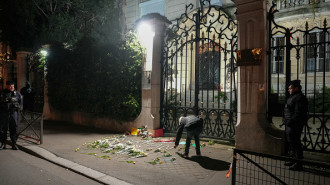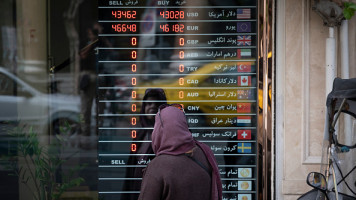Germany's FM to visit Morocco first time since reconciliation over
Germany's foreign minister Annalena Baerbock is expected in Morocco Wednesday on the first official visit since Berlin and Rabat reconciled diplomatic tensions last year.
The German minister will reportedly stay in Morocco for two days to discuss with her Moroccan counterpart Nasser Bourita expanding collaboration between the two states.
A delegation of diplomats, journalists and politicians will accompany Baerbock on her two-days trip to Rabat.
"Morocco is a key country for Germany and Europe. In the future, Morocco will play an important role both in migration issues from the African continent and in the generation of renewable energy," said Katja Leikert, a member of the Christian Democratic Union party (CDU) and part of Germany's delegation to Rabat.
In February, a video conference between Moroccan and German foreign ministers marked the official end of the two countries' diplomatic tensions.
In March last year, Rabat halted diplomatic ties with Berlin following Germany's criticism of former US president Donald Trump's recognition of Moroccan sovereignty over the disputed territory of Western Sahara.
Berlin broke the ice in December last year with an official communique stating Morocco's economic importance to Germany and reiterating its endorsement of Rabat's autonomy plan for the disputed territory of Western Sahara.
Rabat heralded the statement as "another diplomatic victory for the national cause" and decided to move forward to overcome "the misunderstandings with Berlin."
In 2006, Morocco presented its autonomy plan regarding the territory, which is supposed to allow Sahrawis to run their affairs "democratically" through legislative, executive, and judicial bodies, while Rabat retains control over the defence and foreign relations.
For its part, the UN has backed the plan, yet the Polisario Front rejected Rabat's proposal and continues to call for an independent state for Sahrawis.
Since then, numerous UN-sponsored talks have failed to make a breakthrough, each side further entrenched in their positions.
In his August 20 speech, King Mohammed VI cited Germany as one of the "influential countries" having interacted favourably with Morocco on the "crucial" issue of Western Sahara.



